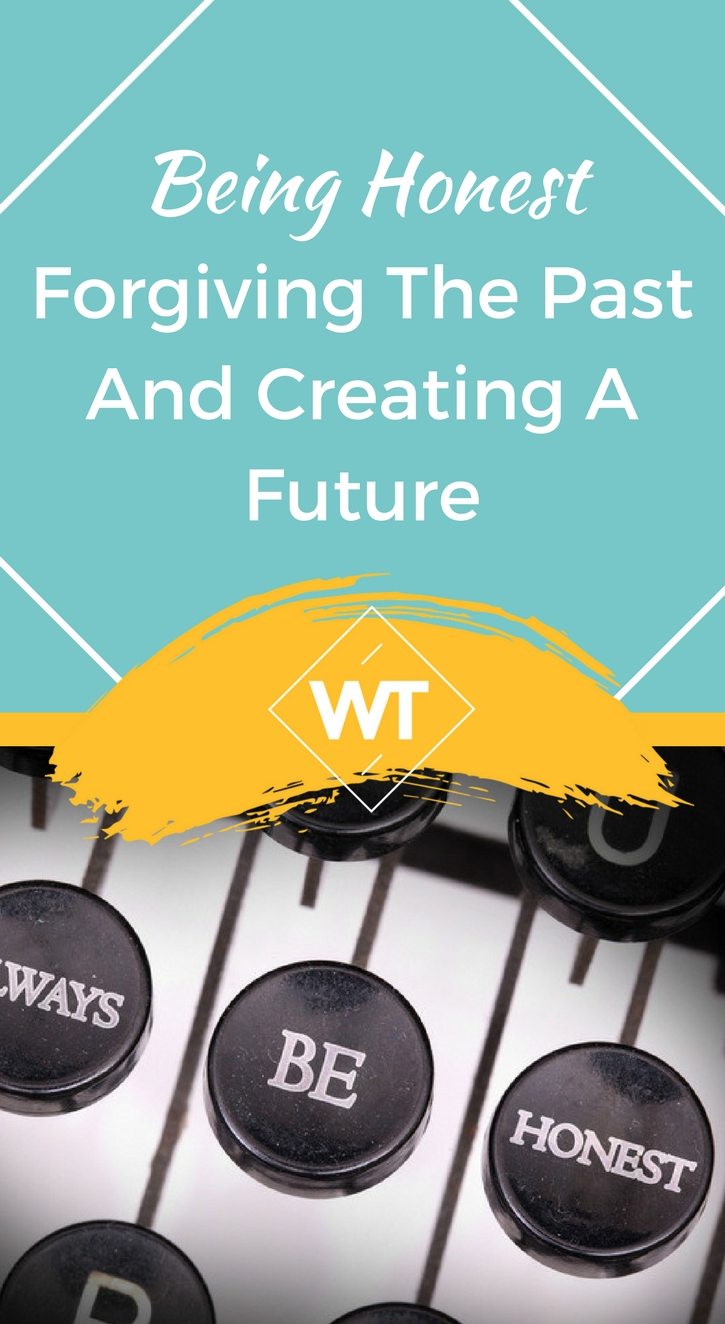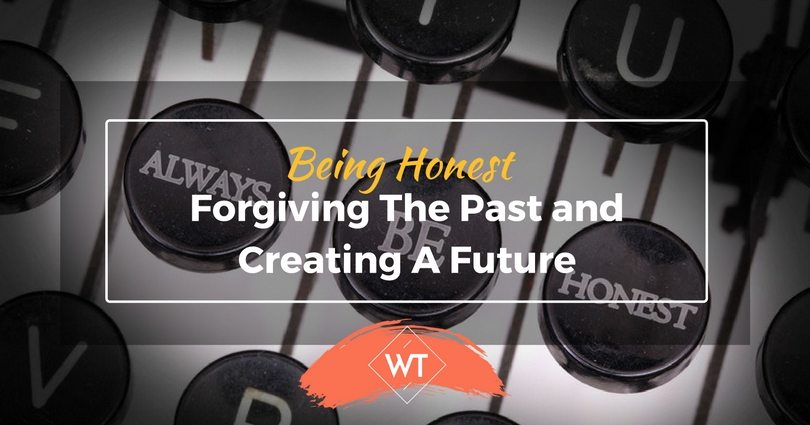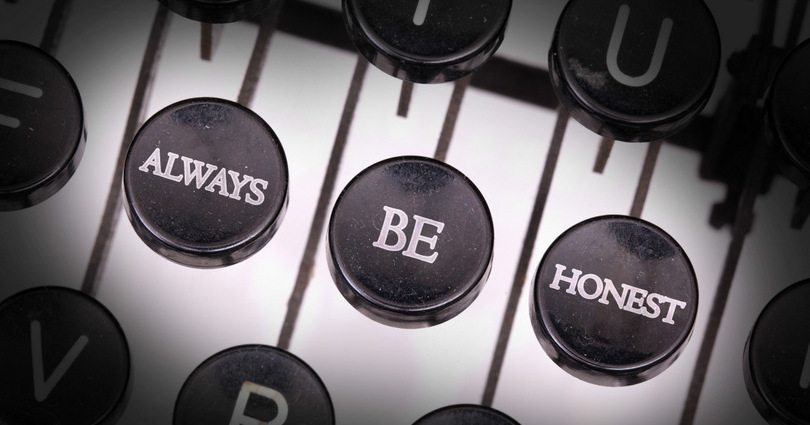Being Honest – Forgiving The Past and Creating A Future

Being honest with oneself is a good exercise. ~ Sigmund Freud (Tweet this)
If we’re being honest, we are all a bit crazy—no one is an angel. If they were, I’m sure they would not be here playing the human game. As hard as it is to swallow, in a strange way, we are all imperfect. Just here… seeking the same thing: to return to our heavenly nature.
You are crazy. We all are. ~ Brad Blanton (Tweet this)
If we are ever to truly experience a life of divine character—one of compassion, forgiveness, and unconditional love—then we must first get honest about all the nonsense in our ways. That means getting honest, owning up to our lies and evil deeds. Otherwise, what we resist will only continue to persist.
Being honest is the alchemical force that transmutes our iniquity into divinity. That is because being honest brings about true love – acceptance. If we want to grow as individuals, we first have to accept what’s stopping us from growth. Acceptance is always the first step to change.
Being honest and getting over our insanity
Dishonesty is insanity. There is a specific technology for getting over insanity. It is called forgiveness.
I’ll be honest; it’s not easy to do. The reason being is that there is no cure for cowardice. There is no formula, no special diet, no inspirational wisdom or enchanting meditation we can do to face our fears. We must brave the unknown, or remain ignorant, unhappy and confused.
Essentially, we have to accept our insanity and allow ourselves to experience it. We must be present in it until we no longer resist it. Until then, insanity will persist and forgiveness will be something we just read about. We have been taught from day one to abstract from our experiences in order to take control of them.
When we feel threatened, our first inclination is to run, escape into our minds and worry ourselves out of the situation. However, hiding in our minds does not give us control. It creates a gap between others and ourselves. This gap is called dishonesty.
When we abstract from experiences; especially when we’re mad, we displace our anger and redirect it to the emotional support of an idea that makes us right and another wrong. If we ever want to forgive—others or ourselves—then we have to come back down from our throne of morality.
Forget morals, be honest
Morals are not the same as core values. Values are our guiding principles for ethical choices. They are not based on morals of right and wrong but ethical guides for making choices that are helpful verses harmful. When we restrict ourselves to morals of right and wrong, we become rigid and, most of all, dishonest.
With honesty, we can stop resisting emotions and accept our experiences—especially experiences of anger and resentment. Until we get honest, we will always try to rationalize behavior and feelings and never truly find acceptance in them.
As satisfying as it is to be righteous, we have to give it up if we ever want to experience forgiveness.
Being honest or becoming honest
Intelligence increases with honesty. ~ Anonymous (Tweet this)
One of the secrets to improving the quality of life is to learn how we are diminishing the quality of life with the models we have and then stopping them. In order to do this we must first be willing to face the unknown of our covert missions.
See, we do a great job of keeping our bad habits out of sight—or at least we think we do. Therefore it requires a great deal of honesty and willingness to face ourselves if we intend to improve our class.
Though no one can force us to be willing, I am making the assumption you have a willingness to improve your life by reading this article.
Here are a few questions you can use to face the unknown, become more honest and live more happily:
- What would I rather not think about?
- What would I rather not talk about?
- What would I rather not feel?
- What would I rather not know?
Each of these questions directs our attention to facets of the unknown. Take some time to answer each question on paper, writing as much as you can for each.
First we look at what may be hidden in our minds, the secrets that we keep such as thoughts, judgments, and theories.
For example, many of us keep thoughts hidden from people because we are afraid of what they might think of us (for example telling the opposite sex that we find them attractive).
This does us no good. When we are secretive we are constantly worried about being found out, becoming highly introverted and eventually acting out in abnormal behavior; nervousness, shyness, and develop an overall low self-esteem.
From there, we do not communicate openly, which causes us to feel things we’d rather not feel. All of this keeps us ignorant about something we’d rather not know—in this example, that we are perhaps inadequate for a desired partner. But staying ignorant keeps us from seeing how will have to grow in order to be a reliable and honest partner to someone.
Ignorance is not bliss; it is dishonest and irresponsible. However, if we can brave the unknown, by being honest—with ourselves, and with others—we can grow immeasurably by accepting new challenges to become the people we need to become, in order to live the lives we dream of.









Leave a Reply